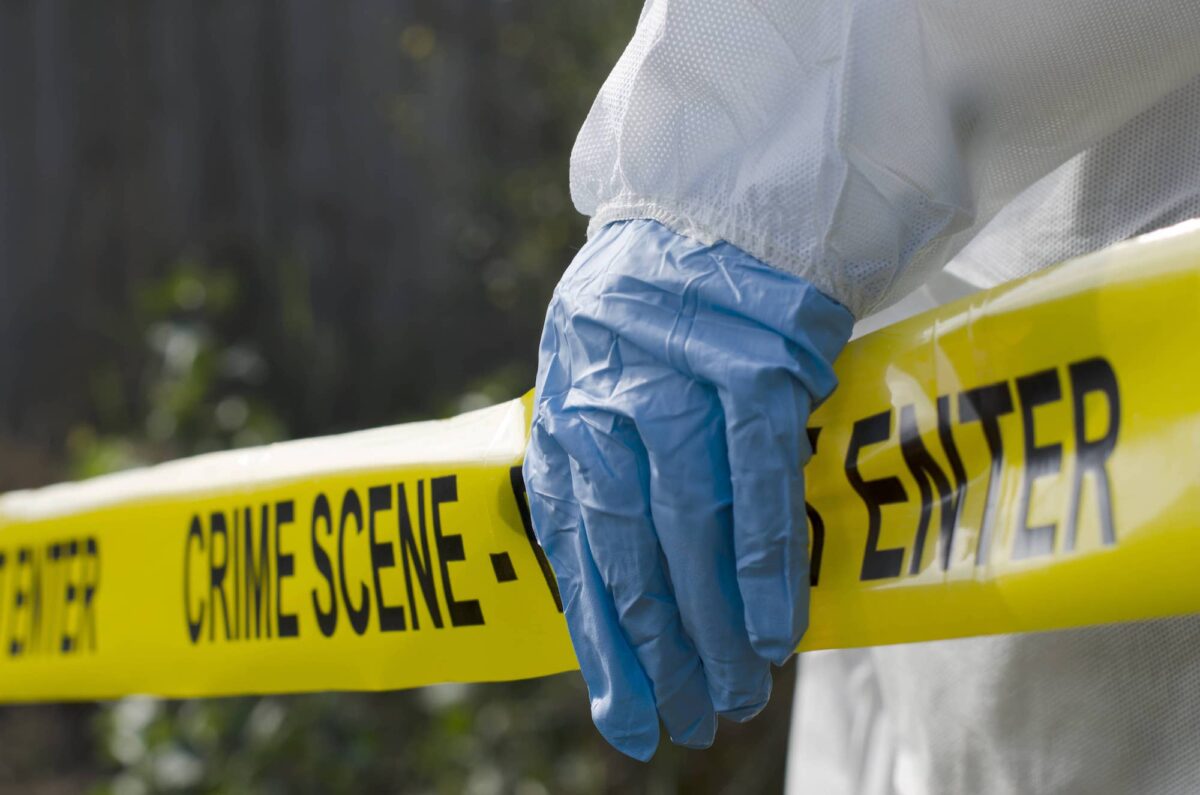How to Become A Crime Scene Cleaner

This time on the BIOClean Team blog, we are going to talk about something a bit different. Usually, we’re here outlining the services we provide, the necessary things to know for potential customers, and the like. But what about the other side of the fence? The cleaner side? This time our blog is going to look at how to become a crime scene cleaner, what to know, and what to consider if this is the career path you’re looking for!
How to Become a Crime Scene Cleaner – Requirements
Crime scene cleaning is an incredibly specific and delicate line of work. To do it correctly, and be able to stick with it, any hopeful is going to need a few things.
Training
Of course, training is the absolute first thing needed. The job may not require a four year degree from a university, but it has its own highly specialized training. Cleaning crime scenes frequently means handling biohazardous waste and other dangerous chemicals. To do this job safely, a cleaner will need to complete training to do just that. There are all sorts of different courses that can instruct cleaners in different facets of the job. Here are just some of the courses and certifications BIOClean Team cleaners have:
- Bloodborne Pathogen Training in Accordance with 29 CFR 1910.1030
- Respiratory Protection Training in accordance with 29 CFR 1910.134
- OSHA Certifications
- Hazard Communication Training in accordance with 29 CFR 1910.1200
- Personal Protective Equipment Training in accordance with 29 CFR 1910.132
- Crime and Trauma Scene Decontamination Specialists (ABRA & IICRC Certified Technicians)
- Awareness-Level Fall Protection Training in accordance with 29 CFR 1910, 66 Appendix C
- Awareness-Level Permit- Required Confined Spaces Training in accordance with 29 CFR 1910.146
- 40 Hour HAZWOPER (Hazardous Waste Operations and Emergency Response)
- Awareness-Level Lock Out/Tag Out Training in accordance with 29 CFR 1910.147
These aren’t all necessary to become a crime scene cleaner, but working in biohazard cleaning requires with a wide range of skills. These certifications will teach would-be cleaners how to use protective equipment to work safely, the necessary skills to decontaminate crime and trauma scenes safely, and more. Many of these can be completed after gaining employment with a crime scene cleaning company, but that will vary place to place.
Hopeful crime scene cleaners can find local courses to begin getting their certifications and then find employment, or look for a potential employer who provides training. But it’s not just the training that the job needs. Crime scene cleaners need to have a few other things that can’t be taught.
What Does it Take To Become a Crime Scene Cleaner?
It Takes Integrity
Crime scene cleanup is a sensitive, delicate matter. For there to be a cleaning require, a crime needs to have taken place and customers who have to have endured a crime. They need to be able to trust the cleaners to come in and do the job right, without any extra stress or friction. Clients are trusting the crime scene cleaners to come into their private spaces and clean their homes, offices, vehicles, other spaces, and belongings.
It Takes Compassion
All too often the crime scenes that need cleaning are the aftermath of traumatic events. The clients who have experienced them are going through some turbulent times. Crime scene cleaners cannot add to that stress. Compassionate crime scene cleaners make the process so much easier for clients, helping them through this difficult time to get them back to some semblance of normalcy.
It Takes Care
Care means so much in this industry. It means compassion and sensitivity, but it also means attention to details. In biohazardous cleaning, a single error could result in a cleaning that isn’t complete, leaving the possibility of health complications down the line.
Something else that some don’t realize? It takes caring for yourself. Handling crime scene cleanups isn’t for everyone. Some cleaners may need to make sure they have a support system in place, or attend a support group or therapy session when it comes to cleaning up crime scenes, especially particularly grisly ones. Even seasoned pros may need to care for themselves from time to time so pay attention and take care.
With all that in mind, what do you think? Is becoming a crime scene cleaner the right job for you?
